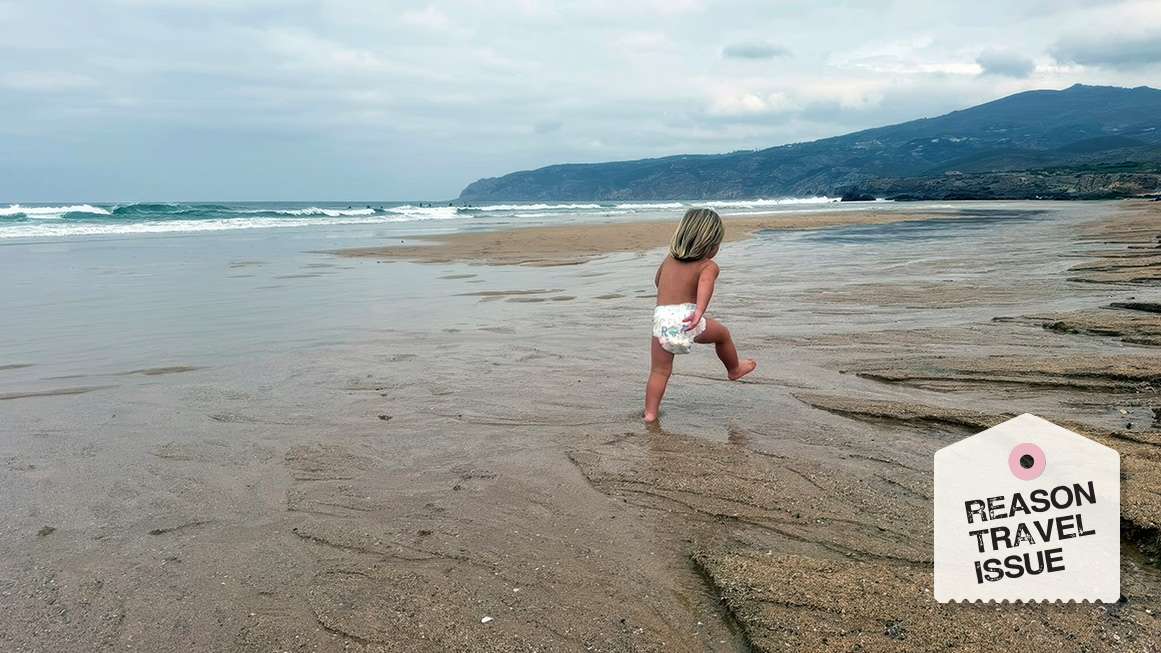How Portuguese Culture Simplifies Parenting

A Unique Perspective on Parenting in Portugal
Parenting can be a challenging journey, but the way different cultures approach it varies significantly. In my experience, one of the most enlightening encounters came during a trip to Portugal, where I learned that the country's culture offers a refreshing perspective on raising children. This insight was part of a broader exploration into family-friendly practices around the world.
A Disturbing Incident at an Airport
One particularly memorable incident occurred in a Portuguese airport, where our 9-month-old son was taken by a local woman who worked in the bakery. While my husband was handling the rental car booking, he took our son to get some pastéis de nata. The woman, seemingly eager to show him around, took him behind the counter and began feeding him custard. Although initially shocked, I found myself wondering if this was just a local custom. It was a reminder of how deeply embedded family values are in Portuguese society.
Family-Centric Culture
Portuguese culture places a strong emphasis on families, which is evident in various aspects of daily life. From airports to public spaces, there are clear privileges for pregnant women, the elderly, and those with young children. These groups often have access to priority lines for security and customs, ensuring they move through efficiently. Locals take pride in these traditions and are quick to correct anyone who might be in the wrong line, showing a level of respect for family norms that is rare elsewhere.
Relaxation on Child Safety
Unlike some Northern European countries that enforce strict rules regarding child safety, such as mandatory car seats for taxis, Portugal takes a more relaxed approach. This allows parents to make choices that best suit their needs, especially those who prefer using public transit. The freedom to choose what works best for them is a significant advantage for many families.
Playgrounds That Encourage Risky Play
The playgrounds in Lisbon offer a unique environment that encourages risky play, which is essential for a child's development. One example is Jardim da Estrela, where climbing structures reach over 15 feet, allowing kids as young as five to compete for the top spot. This kind of play fosters independence and resilience, something that is often overlooked in more restrictive environments.
Contrasting American Approaches
In contrast, the American approach to playground safety is heavily regulated. The Public Playground Safety Handbook discourages the use of free-swinging ropes due to potential hazards, while some cities like New York have even locked playgrounds when the weather turns chilly. These policies seem to prioritize caution over the benefits of outdoor play, often leading to a more sedentary lifestyle for children.
Family-Friendly Amenities
Public parks in Lisbon also feature amenities that cater to young children, such as miniature bathrooms for potty training and the option to change diapers on park benches. Day cares in the area encourage outdoor time regardless of the weather, and the presence of both mothers and fathers handling childcare is a refreshing sight. This balance is a stark contrast to the more rigid parenting styles seen in places like Manhattan and Brooklyn.
Dining with Families
Dining out with children is a common practice in Portugal, with families often seen enjoying meals late into the evening. While the birth rate in Portugal has faced challenges, there is a noticeable rebound from previous lows. This reflects a cultural acceptance of families and children, making it easier for parents to navigate public spaces without the stigma often associated with having kids.
Global Insights on Childrearing
Around the world, various cultures offer unique approaches to childrearing. In Costa Rica, for instance, many expats allow their children to roam freely, often opting for homeschooling. In Panama, young kids are seen surfing unsupervised, showcasing a trust in their abilities. The Germans also provide free-play areas where adults are not allowed, promoting independence among children.
Embracing a Welcoming Society
What stands out about Portuguese culture is its ability to embrace children as a gift rather than a burden. This mindset makes it easier for parents to handle the inevitable messes and tantrums that come with raising kids. The support and understanding from the community create a warm and friendly environment that encourages families to thrive.
In conclusion, the Portuguese approach to parenting highlights the importance of inclusion and practice in teaching children how to behave in public. By fostering a culture that values families, it becomes easier for parents to navigate the challenges of raising children, creating a more supportive and nurturing environment for everyone involved.
Post a Comment for "How Portuguese Culture Simplifies Parenting"
Post a Comment